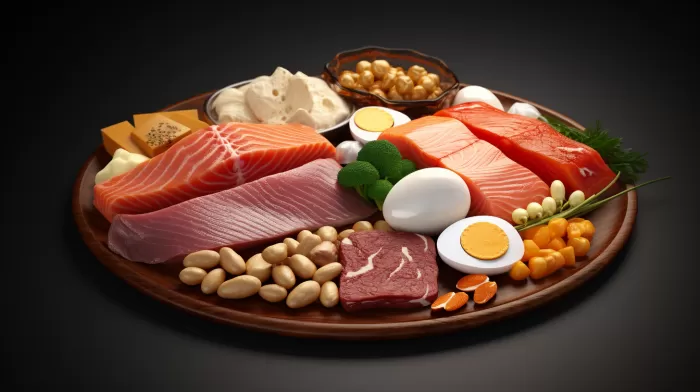Tired of losing weight just to put it all back on again? You’re not alone. In fact, many people struggle with what’s known as “yo-yo” dieting. But don’t worry – there are ways to break free from this frustrating cycle and achieve lasting weight loss. And it all comes down to one thing: eating more protein.
The Power of Protein in Maintaining Weight Loss
A study conducted at the Karolinska Institutet’s Clinical Epidemiology Unit and the Obesity Center at Karolinska University Hospital in Sweden discovered that dieters who increased their protein intake after losing weight were less likely to regain those lost pounds. The research also found that using meal replacements and anti-obesity drugs might be beneficial for some people.
So, why does eating more protein help keep the weight off? According to researcher Erik Hemmingsson, “the body has several defense mechanisms against weight loss, such as increased hunger, lower energy metabolism, and relapse back to old habits.” This makes it very challenging to maintain weight loss over the long term.
Fortunately, protein seems to counteract these defense mechanisms. It not only helps curb hunger but also plays a crucial role in repairing and rebuilding muscle tissue, which is essential for maintaining a strong metabolism.
Strategic Ways to Add More Protein to Your Diet
Incorporating more protein into your daily meals doesn’t have to be complicated. Here are some easy and delicious ways to boost your protein intake without feeling like you’re on a strict diet:
- Start your day with protein-packed breakfasts – Instead of munching on a carb-heavy bagel or cereal, opt for a protein-rich breakfast like Greek yogurt, eggs, or a protein smoothie.
-
Snack smarter – Ditch the cookies and chips for protein-packed snacks like almonds, hummus and veggie sticks, or roasted chickpeas.
-
Choose lean proteins for dinner – Instead of carb-laden pasta dishes, go for protein-packed options like grilled chicken or fish. Pair with plenty of veggies for a well-rounded and satisfying meal.
-
Add protein to your salads – Instead of just consuming vegetables in your salad, toss in some grilled chicken, tofu, or salmon. It will not only make your meal more filling but also significantly up its protein content.
-
Opt for protein-rich snacks before bed – Having a small protein snack before bed, like cottage cheese or a casein protein shake, can help stave off late-night hunger and support muscle repair while you sleep.
-
Favor whole, unprocessed protein sources – Avoid processed meats and packaged protein foods, which often contain harmful additives and can lead to inflammation and weight gain. Instead, stick to whole food sources like lean meats, legumes, dairy, and seafood.
The Role of Meal Replacements and Anti-Obesity Drugs
As mentioned earlier, the study also found that meal replacements and anti-obesity drugs might help with long-term weight control for some people.
However, note that anti-obesity drugs can have potential side effects and should always be prescribed and monitored by a physician. On the other hand, meal replacement products and high protein diets are safe and widely accessible for everyone.
Meal replacements, such as protein shakes or bars, can make it easy to get the necessary daily protein intake without overeating or consuming too many calories.
Keep in mind, though, that meal replacements should not become your sole source of nutrition. It’s crucial to consume a balanced diet that includes whole, nutrient-dense foods from various food groups.
The Bottom Line
Breaking free from yo-yo dieting and achieving lasting weight loss is possible, and increasing your protein intake is a major part of the solution.
By incorporating more protein into your daily meals and possibly using meal replacements as a supplementary strategy, you can boost your metabolism, curb hunger, and prevent relapse into old habits, ultimately giving you the tools you need to maintain a healthy weight in the long run.



